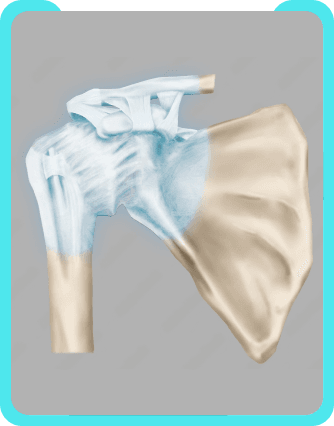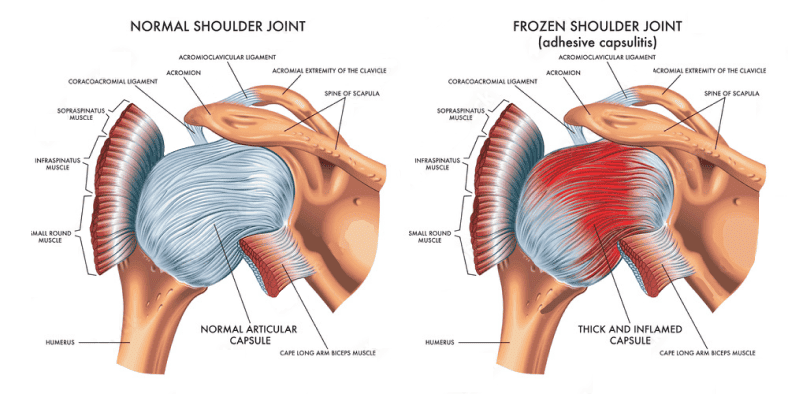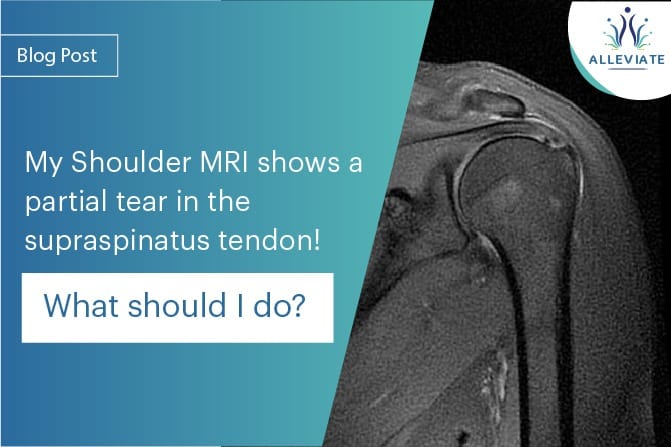
Frozen Shoulder
- Home
- Conditions
- Shoulder Pain
- Frozen Shoulder
Frozen shoulder is a condition that affects your shoulder joint. It usually involves pain and stiffness that develops gradually, gets worse and then finally goes away. This can take anywhere from a year to 3 years.
Symptoms : The main symptoms of a frozen shoulder are pain and stiffness that make it difficult or impossible to move it. If you have frozen shoulder, you’ll likely feel a dull or achy pain in one shoulder. You might also feel the pain in the shoulder muscles that wrap around the top of your arm. You might feel the same sensation in your upper arm. Your pain could get worse at night, which can make it hard to sleep.
Treatment for Frozen Shoulder
Causes
Frozen shoulder happens more often in women than men, and you’re more likely to get it if you’re between the ages of 40 and 60. Your risk might also go up if you’re in the process of recovering from a medical condition like a stroke, or surgery like a mastectomy that keeps you from moving your arm.
Certain medical conditions can increase your risk too. You may also be more likely to get frozen shoulder if you have diabetes. About 10% to 20% of people with diabetes get frozen shoulder. Other medical problems like heart disease, thyroid disease, or Parkinson’s disease are linked to frozen shoulder, too.
Prevention
One of the most common causes of frozen shoulder is the immobility that may result during recovery from a shoulder injury, broken arm or a stroke. If you’ve had an injury that makes it difficult to move your shoulder, talk to your doctor about exercises you can do to maintain the range of motion in your shoulder joint.
During the physical exam, your doctor may ask you to move in certain ways to check for pain and evaluate your range of motion (active range of motion). Your doctor might then ask you to relax your muscles while he or she moves your arm (passive range of motion). Frozen shoulder affects both active and passive range of motion.
In some cases, your doctor might inject your shoulder with a numbing medicine (anesthetic) to determine your passive and active range of motion.
Frozen shoulder can usually be diagnosed from signs and symptoms alone. But your doctor may suggest imaging tests — such as X-rays or an MRI — to rule out other problems.

Treatment
- Regenerative medicine ( Stem cells/ Platelet rich plasma therapy/Prolotherapy)
- Nervel blocks
- Hydrodilatation of the shoulder joint
- Exercise and physical therapy

Therapy
A physical therapist can teach you range-of-motion exercises to help recover as much mobility in your shoulder as possible. Your commitment to doing these exercises is important to optimize recovery of your mobility.
Lifestyle and home remedies
Continue to use the involved shoulder and extremity as much as possible given your pain and range-of-motion limits. Applying heat or cold to your shoulder can help relieve pain.
Frozen Shoulder treatment at alleviate
Triple Procedure
Purpose: Alleviate pain, improve mobility, and restore shoulder function.
Components:
- Suprascapular Nerve Block: Injection of anesthetic near the suprascapular nerve to provide immediate pain relief and reduce muscle spasms
- Hydrodilatation: Injection of saline and steroid solution into the shoulder joint to stretch the capsule and improve range of motion.
- Manipulation: Gentle manipulation of the shoulder under anesthesia to break up adhesions and increase range of motion.
Benefits: Comprehensive and rapid improvement in shoulder function, reduced stiffness, pain relief, and increased mobility.
- Purpose: Promote healing and reduce inflammation.
- Procedure: Injection of platelet-rich plasma derived from the patient’s own blood into the shoulder.
- Benefits: Enhanced tissue repair, reduced pain, improved function.
Rehabilitation
- Purpose: Restore strength and flexibility.
- Procedure: Customized physical therapy program following the triple procedure and PRP therapy.
- Benefits: Long-term improvement in shoulder function, prevention of recurrence, enhanced quality of life.
Combined Approach
- Comprehensive Treatment: The triple procedure, followed by PRP therapy and rehabilitation, offers a holistic approach to treating a frozen shoulder.
- Goals: Alleviate pain, restore shoulder function, and prevent future complications.
At Alleviate Pain Clinic, we provide a comprehensive, non-surgical treatment plan for frozen shoulder, combining the triple procedure (suprascapular nerve block, hydrodilatation, and manipulation) with PRP therapy and rehabilitation. Contact us to develop a personalized approach to manage your condition and improve your quality of life.
Video Spotlight
Blog
Surgery-Free Solutions
Expert Tips for Pain Management
Testimonials
Words From Our Patients
The treatment was very good and the doctor Faraz Ahmed was very kind to the patient and explained clearly the procedure of knee bilateral ha & botox And we were advised to do physiotherapy. We are very much satisfied. We would recommend this alleviate pain clinic. Thank you
Got treatment of Botox and HA for right knee arthritis a month ago and finding good relief from pain. Was treated by Dr Swagtesh Bastia who explained very well about the injections and the treatment was painless. The front desk staff were very kind and very helpful and physiotherapy was also done expertly, overall good experience
Alleviate Pain Management clinic has been a godsend for my mom's knee pain. She has been treated by Dr. Wiquar Ahmed. The attentive staff provided personalised care, and after her treatment, she's feeling remarkably better. Thank you for giving my mom the relief she deserves!
The clinic is super clean with a great OT and most importantly all the staff here are very helpful and considerate. My gratitude to Dr Roshan, the nurses, and support staff - they were always available to assist with any issues post procedure and they even made an extra effort to make a home visit for a follow up check-up. This team here is the perfect example of healing and care with a human touch. Thank you!!!!!
My wife had knee pain I have visited alleviate pain and consulted doc santhoshi now she is able to walk pain free and can do her daily activity than before.the physiotherapist here Dr akhila also helped her with few exercises and the staff here Abdul explained all the procedures well . Thank you PPL can visit here for pain relief






